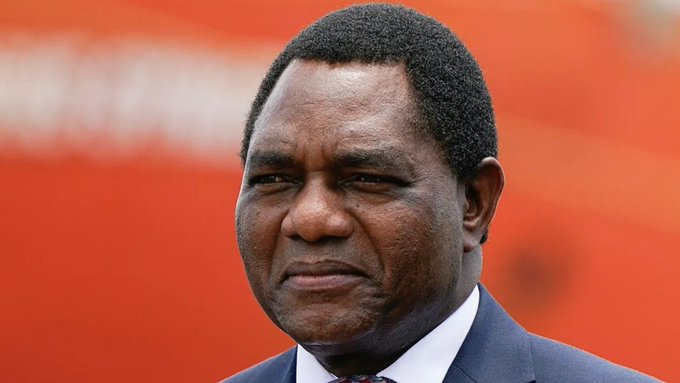In a landmark case in Zambia, two men have been sentenced to prison for attempting to use witchcraft in a murder plot against President Hakainde Hichilema. This case highlights the intersection of traditional beliefs, politics, and the law in modern Zambia.
Case Background
Two men, Leonard Phiri (a Zambian) and Jasten Mabulesse Candunde (a Mozambican), were arrested in December 2024 in Lusaka, Zambia’s capital. They were found in possession of charms believed to be used for bewitching and harming the president. Among the items confiscated was a live chameleon, which plays a significant role in the ritual intended to cause the president’s death within five days according to court findings.
The two men admitted to being traditional healers but were prosecuted under Zambia’s Witchcraft Act of 1914. They were allegedly hired by Nelson Banda, brother to former independent Member of Parliament Emmanuel Banda, who is currently facing serious charges including robbery and attempted murder.
Court Proceedings and Verdict
Magistrate Fine Mayambu convicted the men on charges of practicing witchcraft and possessing charms with intent to cause harm. Despite their defense lawyer’s plea for leniency citing it as a first offense, the court sentenced both men to 24 months imprisonment with hard labor. They also received concurrent sentences of six months each for cruelty to wild animals, due to possession of a live chameleon.
The magistrate underscored the threat that such actions pose not only to the president but to the nation’s political and social stability, emphasizing that the law would not tolerate any attempts to undermine the country through supernatural means.
Cultural and Political Context
Belief in witchcraft remains deeply embedded in many Zambian communities and throughout southern Africa. While this case is unique in targeting a sitting president, accusations and prosecutions related to witchcraft have occurred primarily in rural areas, often linked to social tensions.
The Witchcraft Act, although colonial-era legislation, still serves the dual purpose of criminalizing public witchcraft-related harm and protecting vulnerable individuals from accusations and mob justice.
The case also has clear political overtones, given the accused were allegedly hired by a politically connected individual. Some observers and opposition sources view the prosecution as a political maneuver amid an increasingly polarized political climate in Zambia, with the government eager to demonstrate control over threats to its leadership.
President Hichilema’s Stance
President Hichilema has not publicly commented directly on the trial but has previously dismissed witchcraft allegations in political discourse. His administration’s swift handling of the case signals intent to deter both political and supernatural threats.
Witchcraft Murder Plot Case Details
| Aspect | Details |
|---|---|
| Accused | Leonard Phiri (Zambian), Jasten Mabulesse Candunde (Mozambican) |
| Arrest Date | December 2024 |
| Location of Arrest | Lusaka, Zambia |
| Charges | Practicing witchcraft, possession of charms, animal cruelty |
| Items Confiscated | Live chameleon, white powder, red cloth, animal tail |
| Alleged Client | Nelson Banda (brother to former MP Emmanuel Banda) |
| Sentence | 24 months imprisonment with hard labor + 6 months concurrent sentence for animal cruelty |
| Legal Basis | Witchcraft Act (1914) |
| Cultural Significance | High belief in witchcraft in Zambia and Southern Africa |
| Political Implications | Alleged link to politically motivated plot |
| Magistrate | Fine Mayambu |
Conclusion
The conviction and sentencing of the two men mark a significant moment in Zambia’s legal and political history, underscoring the country’s efforts to protect its leadership through both modern legal processes and acknowledgment of traditional beliefs. The case sends a strong message that threats, whether physical or supernatural, against the president and the state will be met with firm legal consequences.
This trial also reignites debates on the relevance and impact of colonial-era witchcraft laws in contemporary African societies where cultural beliefs intersect with political realities.
Through this pivotal ruling, Zambia balances respect for indigenous spiritual practices while upholding national security and the rule of law.

